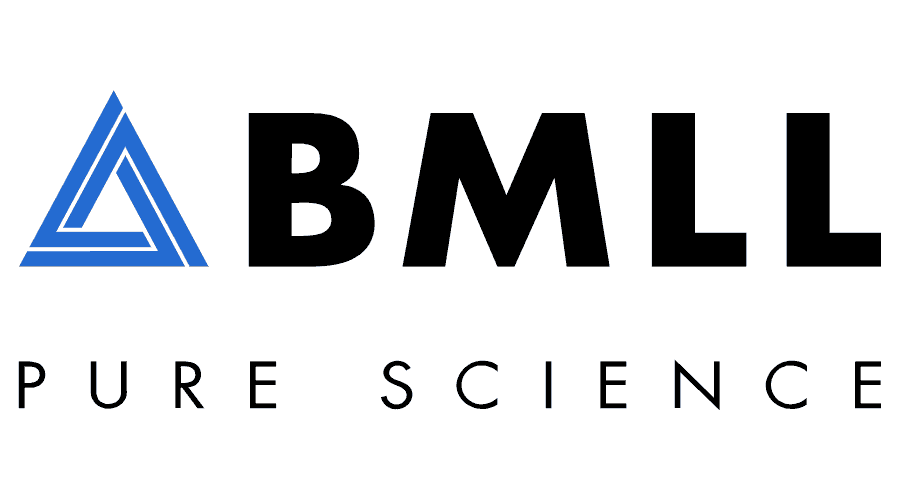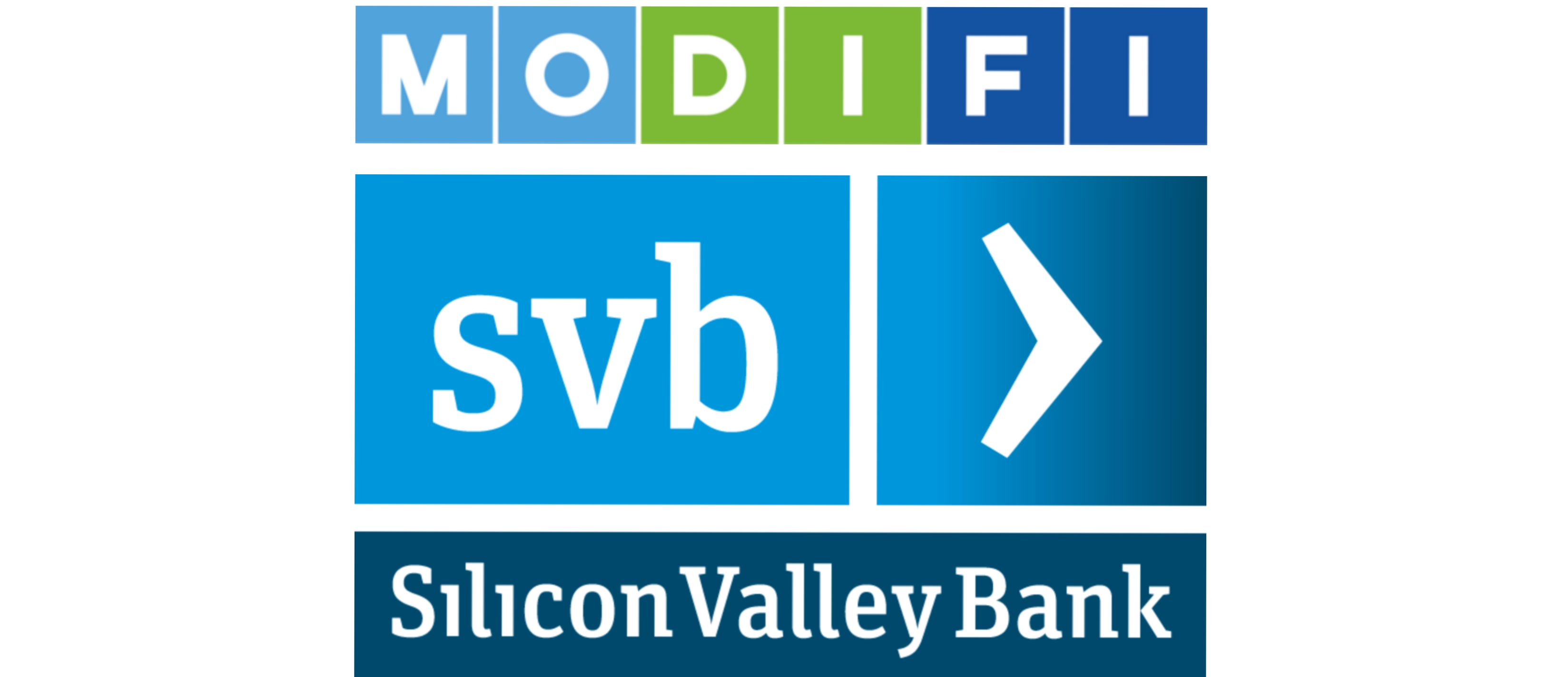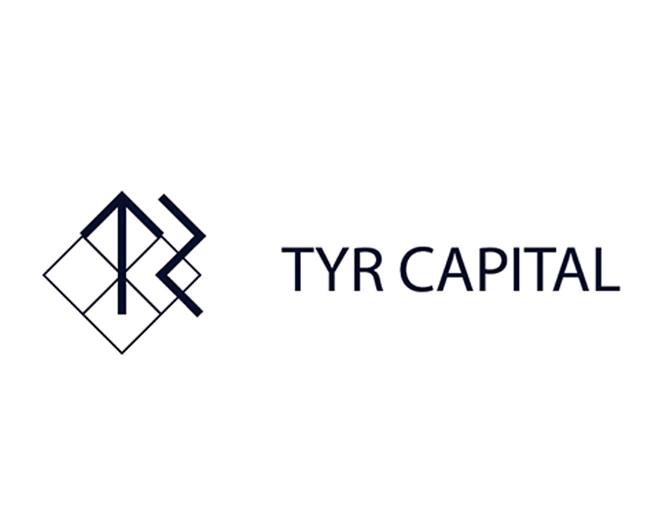Published
- 07:00 am

We are delighted to announce that BMLL Technologies won The Trade News ‘Editors’ Choice & Fintech Award’ for ‘Best Data and Analytics Innovation’ during the 2021 Leaders in Trading Event, held on 17 March 2021.
BMLL stood out for its innovative approach to providing buy side firms, hedge funds, Tier 1 banks and global exchange groups with access to granular, Level 3 order book data and advanced analytical power at unparalleled speed and scale. BMLL’s mission is to unlock the predictive power of pricing data and offer clients the insight they need to understand how markets behave, backtest their trading strategies and make more informed decisions.
Paul Humphrey, CEO of BMLL Technologies, said: “I believe that the race for speed is over and the race for data and analytics is on. Our industry is waking up to the predictive power of the historic, Level 3 data that we offer to support their alpha-discovery and decision-making processes.”
Over the last six months BMLL reached a significant milestone, making 5 years of historic Level 3 data available to buy side firms in order to improve alpha generation and mitigate risk. The BMLL Data Lab enables them to unlock the full predictability of pricing data, and go beyond the top of the order book to analyse long-term trends and backtest strategies with the singular aim of improving trading decisions and overall performance.
Humphrey continued: “I am very excited to have gained industry recognition for our innovative data and analytics offering against such esteemed competition including IHS Markit, Refinitiv and Virtu Financial. My heartfelt thanks goes to our extremely talented team who continue to deliver outstanding products and client services, making our historic Level 3 data accessible to the wider market.”
BMLL’s historic Level 3 order book data is delivered in a completely harmonised and information rich format alongside a comprehensive suite of analytics, easily accessible within daily workflows.
Related News
- 05:00 am

Global fintech MODIFI announces a new 60m USD debt facility with Silicon Valley Bank (SVB), bringing its total raised capital to 111m USD. The facility from SVB's German Branch will be used to address increasing demand in existing markets, as well as fuel MODIFI's continuing growth and finance buyers and sellers in new geographies, particularly the US.
Expansion into the US, paired with the existing coverage, will establish MODIFI as the only digital trade finance platform focused on SMEs that spans the three major trading regions of Europe, Asia and North America - a cluster which encompasses approximately 80% of global imports and exports respectively.
Small and medium-sized businesses are turned down in 50% of cases when requesting trade finance, which has resulted in a 1.5 trillion USD annual funding gap. The pandemic has only exacerbated the situation as risk appetite decreased globally. MODIFI is empowering SMEs to trade internationally and grow, thus benefiting local economies.
"We are excited to partner with Silicon Valley Bank on our journey to digitize the global trade industry, which has traditionally been extremely paper-heavy" says CEO and Co-Founder Nelson Holzner. "The pandemic has forced many analogue processes to move online, and we are seeing more and more SMEs appreciating the value of a platform that provides them with trade finance from their own homes, whenever they need it."
"We're pleased to become a new funding partner to MODIFI to support its geographical expansion to the US, further investment in its digital platform and continued growth. Our partnership builds on the momentum of SVB's warehouse financing platform in EMEA as it showcases our ability to be a key partner in financing global innovators like MODIFI", says Folake Shasanya, Managing Director of Fintech Warehousing at SVB EMEA.
"Supporting innovation is in our DNA and we are delighted to provide this significant facility to MODIFI through our EMEA warehouse financing team from our SVB German Branch", adds Christian Hoppe, Managing Director, SVB Germany.
MODIFI tripled their business in 2020 as a result of a strong performance during the pandemic. The increase in demand for digital cash management solutions allowed the company to expand to four new markets in 2020, launching in China, Hong Kong, the UAE and Spain. The trend has continued in 2021 with MODIFI's launch in the Netherlands. The company currently operates out of 7 offices in Berlin, Amsterdam, Delhi, Mumbai, Shenzhen, Hong Kong and Dubai.
"Despite the unprecedented disruption to the world's economies, 2020 proved a strong year for MODIFI. As global supply chains were destabilized, SMEs found it harder to trade on favourable credit terms. We were well positioned to step in and address the needs of the market" says Holzner. "Our simple tech solutions allow us to digitally underwrite our customers and provide them with import and export financing in a matter of days."
Related News
- 04:00 am

HPS, the leading global provider of payment solutions, today announced a new partnership with Utimaco, a leading global provider of IT security solutions. As part of the partnership, HPS has integrated Utimaco’s hardware security module Atalla AT1000 into PowerCARD, HPS’ comprehensive suite of solutions that covers the entire payment value chain.
Utimaco’s Atalla Hardware Security Modules (HSM) have been specially developed for the banking sector and were one of the first Payment HSM worldwide to be PCI PTS HSM v3.0-certified. Customers who use Atalla technology are prepared for the challenges arising both from traditional IT environments as well as from new multi-cloud requirements. Atalla HSM are used by leading players in the payment market such as issuers, Payment Service Providers (PSP), acquirers, card schemes, cloud service providers and payment networks worldwide to protect their payment ecosystems and achieve the highest possible level of compliance. Here, Utimaco plays a decisive role in securing interbank communication, user and card authentication, secure EMV card issuance and in protecting user data.
Nabil Ibenbrahim, Deputy Managing Director at HPS commented: “Security in the payments industry must be a priority, especially with the sharp rise in digital transactions accelerated by the Covid-19 pandemic. Failure to adopt the latest standards will sooner or later hurt consumers and businesses alike. In Utimaco, we have found a worldwide supplier of cybersecurity solutions to ensure our customers business is safe with us.”
Haris Sethi, Global Strategy Manager at Utimaco on this partnership: “Banking and financial services are among the most heavily regulated sectors in the market. With the change in customer behaviour in relation to payments conducted online or in-store over the past year, and with the rise of digital payments since the start of the corona pandemic, it is now more important than ever to safeguard sensitive customer data. The collaboration with HPS ensures a fully integrated and compliant end-to-end solution using state-of-the-art products. We are excited that our strategic partner HPS shares our vision about the importance of innovative security solutions.”
Related News

N/A
N/A at N/A
Anyone new to the world of retail foreign exchange trading might not have come across the full range of strategies on offer just yet. see more
- 06:00 am

Leading global fintech Gresham Technologies plc (Gresham) that specialises in providing solutions for data integrity and control, banking integration, and payments and cash management, today announced that it has appointed Harvey Colborne to lead business development and sales across the UK and Ireland.
Colborne brings extensive knowledge and experience of both the buy and sell-side, specialising in post-trade and data technology following a successful career with roles at JPMorgan, Schroders, and BNY Mellon, as well as large technology providers such as Interactive Data and IHS Markit, where he was Sales Director, Corporate Actions, EMEA, and Global Relationship Manager, respectively.
On his appointment, Harvey said: “I’m excited to be part of Gresham at such an important stage in its development and to be working closely with the innovators and architects behind the industry’s leading cloud-first, data control platform”.
Spencer Black, Head of Sales, UK & Europe, added: “We are seeing exponential growth and demand for our Clareti Connect and Clareti Control Solutions as firms place data accuracy, control and connectivity at the very top of their business transformation agenda. With over 20 years of experience helping financial institutions build competitive advantage and proven success in driving growth, Harvey is the right person to help us continue our journey and gain even greater market share in the UK and Ireland.”
This appointment comes at a time of sustained growth for Gresham, who reported a strong 2020 performance thanks to notable new logo wins including Santander UK and the expansion of its regulatory reporting capabilities through the acquisition of Inforalgo. Last week, the firm announced that a fast-growing Luxembourg-based financial group has selected the Clareti platform to connect, control and ensure the integrity of its data and processing, as it deploys its next generation of digital banking solutions for the asset management and corporate sectors.
Related News
- 01:00 am

Juerg Hunziker is stepping down as CEO on 31 March 2021. He joined Avaloq in 2016 and assumed the CEO role in 2018. Armed with 30 years of experience in developing financial technology companies, he transformed Avaloq from a founder-driven firm to a mature, scalable business. His efforts culminated in Avaloq’s acquisition by NEC at the end of last year. Following his personal decision to withdraw from the CEO role at the end of March 2021, he will focus on interaction with existing and prospective clients of Avaloq as its Senior Advisor to the Group Executive Board.
From 1 April 2021, current Group Executive Board members Martin Greweldinger, Group Chief Product Officer, and Thomas Beck, Group Chief Technology and Group Chief Service Delivery Officer, will become co-CEOs of Avaloq.
This change ensures leadership continuity following Avaloq’s recent acquisition by NEC Corporation, a global leader in the integration of IT and network technologies. Avaloq is also positioning itself for further growth by facilitating the digital transformation of client firms and responding to global demand that has accelerated in the last 12 months. The company continues to invest in its leading core banking platform and will further scale the recently launched core-agnostic products – Avaloq Wealth, Avaloq Engage and Avaloq Insight. These award-winning solutions form the cornerstone of a product offering that helps banks satisfy client needs in this new era. As client expectations increase, Avaloq is setting financial industry standards with easy-to-use systems that minimize manual work and deliver unrivalled reliability and straight-through-processing. It is helping to democratize wealth management and empower the financial sector by automating operations through scalable services and leading cloud-based software solutions delivered “as a Service”.
Juerg Hunziker, CEO of Avaloq, said: “First and foremost, I would like to thank all Avaloq employees for their dedication and hard work not only during this past year, which was an exceptional one in many ways, but also during prior years, which laid the foundation for where we are today. I followed the success story of Avaloq almost since its inception, and I consider being part of this company a true honour. Avaloq is the rare kind of company you want to work for because of its continuous ability to reinvent itself. However, I have now come to a point in my life where it is time to reinvent myself, too. I will remain dedicated in driving Avaloq to further growth, and I look forward once again to being able to spend more time with existing and future clients, which is my passion.”
Masakazu Yamashina, Executive Vice President of NEC and Chairman of Avaloq, said: “I would like to sincerely thank Juerg for his hard and successful work and enormous commitment over the past years. He significantly contributed to transforming Avaloq into the mature and scalable business it is today, and which NEC decided to invest in. In addition, he contributed to building Avaloq’s exceptional talent pool that we can now directly benefit from. I am glad that Juerg remains with Avaloq in a Senior Advisory role, and that we will be able to continue to benefit from his expertise and strong relationships with clients. At the same time, I am delighted that, with Martin and Thomas, we have co-CEOs who know Avaloq inside out and who enjoy the full trust of Avaloq’s Board of Directors as they take the company into its next chapter of growth by producing meaningful synergies with NEC.”
Martin Greweldinger, Group Chief Product Officer and new co-CEO of Avaloq, said: “I am very much looking forward to advancing a new era of Avaloq in alliance with NEC. I feel very honoured to lead this company together with Thomas. Not long ago Avaloq successfully launched its core-agnostic platforms, and I will focus on providing banks with access to these innovative solutions so they can deliver exceptional wealth management services in today’s world. I also look forward to driving innovation throughout the whole organization, including client-facing functions, internal operations and finance.”
Thomas Beck, Group Chief Technology Officer, Group Chief Service Delivery Officer and new co-CEO of Avaloq, said: “Co-CEO is always a special setup and with Martin I could not wish for a better partner at my side. My goal is to leverage what we did within the technology teams over the past few years – transforming it into a truly agile organization – to bring the entire architecture together with cloud technology. I am very excited about the next chapter in Avaloq’s history as it will be one of accelerated growth and unequivocal focus on client-centricity.”
Related News
- 09:00 am

Twilio (NYSE: TWLO), the leading cloud communications platform, today announced the results of a survey uncovering businesses’ perception of software developers and the importance of technology in UK companies’ survival during the pandemic. The findings reveal that nearly all UK businesses consider developers to be important for digital transformation (95%) and in defining an appropriate response to the pandemic (91%) - for example by enabling virtual communication with customers - but the majority are not yet unlocking the full power of developers.
Organisations have turned to technology, especially software, to tackle new challenges arising from the pandemic and to aid future business recovery. The research, which surveyed CTOs, CIOs and other senior IT decision makers, found that nearly all (96%) believe the role of technology was important in responding to the challenges of the pandemic, with 68% saying it was ‘very important’. In line with this, their perceived value of developers for the overall success of the business is starting to be realised. Prior to the pandemic, 31% said that developers were ‘vital’ to the performance of the organisation, which has jumped to 41% since the pandemic began.
While the results demonstrate the growing importance of developers to survive the pandemic, many organisations are still underusing developer teams by distancing them from customers and what they are trying to address until later in the process. The research revealed that less than half (47%) of organisations engage developers at the start of a project, with the majority only bringing them in later down the line, for example when briefing them to build the solution versus help to shape it to meet business needs.
“The organisations that solve customer problems with software are winning in the pandemic, as they continue to actively engage with their customers, even without face to face interactions,” said Marcos Placona, Head of Developer Relations EMEA at Twilio. “Developers are a creative workforce who can solve major business challenges and create invaluable customer products, if they are given the opportunity - they do not simply write code. Organisations that bring them in from the onset to understand objectives can unleash their power and therefore the power of the code they write.”
Key findings from the research include:
- Businesses are realising the value of developers: Of the 91% that said developers were important in responding to pandemic challenges, more than half (53%) regarded their role as ‘very important’. This increases to 70% in the IT, technology & telecoms sector. Of the 95% that said the role of developers was important for digital transformation, 57% considered it as ‘very important’.
- Developer involvement in strategy remains unchanged despite their importance in the pandemic response: Prior to the pandemic, 36% of respondents said developer teams were ‘heavily involved’ in strategic decision making in their organisations. This remains unchanged since the pandemic began (38%). In contrast, CTOs and senior IT decision makers in some sectors saw their own involvement in strategy increase from 56% being ‘heavily involved’ to 68% in professional services and from 56% to 64% in retail.
- Financial services organisations have embraced developers most: Respondents from the finserv sector overwhelmingly recognised the value of technology as ‘very important’ to respond to pandemic challenges (84%), compared to organisations on average (68%). Moreover, their perception of developers as ‘vital’ to the performance of the organisation jumped from 42% pre-pandemic, to 51% since it began. Developer involvement in strategic decision making also jumped considerably from 26% being ‘heavily involved’ to 40% since the outset of the pandemic.
- Developers need to be aligned to business problems: Only 47% of businesses bring their developer team in at the start of a project. While more than half (53%) delay this process, for example only engaging them once the solution has been defined and needs to be built.
The research follows the launch of a new book by Twilio CEO and co-founder Jeff Lawson, Ask Your Developer: How to harness the power of software developers and win in the 21st century. Ask Your Developer is written as a toolkit for business leaders, helping them to future proof their businesses by solving customer problems with software. The key themes of the book are why developers matter more than ever, understanding and motivating your developers and making your developers successful.
Related News
- 07:00 am

Tencent backs payment services innovator Enfuce in Series B funding round and appoints Dr. Ling Ge, Chief European Representative at Tencent, to Enfuce’s Board of Directors for strategic guidance as the Nordic fintech scales to Europe as well as globally.
Nordic-based card issuing and payment processing services pioneer Enfuce has raised €7M in Series B funding led by Tencent’s €5M investment, welcoming the strong global VC with a diverse digital portfolio to the investor team.
One of Enfuce’s prior investors Maki.vc invested the other €2M, bringing the total amount raised by the company to €15M. Apart from Maki.vc, the company has been previously supported by a mix of debt and VC financing from multiple Finnish investors: Nordea, LähiTapiola, and Finnvera.
Enfuce, with their global customer base spanning 16 countries and counting, has already established itself as a trusted, knowledgeable, and experienced provider of innovative payment, open banking, and sustainability services for corporates and fintech SMEs. It is this unique combination of card issuing and value-adding services that caught Tencent’s eye. The strong team of founders and experts behind the brand strengthened the global VC’s trust in Enfuce as a solid investment opportunity.
“In this investment, it was very important to us that Dr. Ling Ge now has joined our Board of Directors. Tencent sees that we will bring new things to payment technologies, especially speed. They’re also interested in the impact we can make through My Carbon Action – our carbon footprint calculator connected to payments”, comments Monika Liikamaa, Co-Founder & CEO at Enfuce. Dr. Ling Ge is a seasoned technology professional with a PhD in Quantum Computing from Oxford University, and she has developed executive management expertise in both academic and business settings over the course of her career.
Dr. Ge is currently driving Tencent’s European presence as the London-based Chief European Representative & General Manager, responsible for strategic partnerships with multiple private and public sector stakeholders, including tech companies, universities, and government bodies across the EU.
Dr. Ge envisions Enfuce to positively change the global payment industry in the coming years.
“We are excited to be part of the Enfuce journey as they set out to revolutionize the payment industry. With the team’s industry knowledge and capability, we believe it will make advancement and bring even more benefits to the industry in future”, commented Dr. Ling Ge, Chief European Representative and General Manager at Tencent. With the investment, Enfuce is set to gain more growth in Europe as well as globally, and explore the opportunities of company acquisitions to speed up growth.
“Since the beginning, we have set the ambitions to scale globally, and the latest investment into Enfuce is the first step towards that goal”, says Denise Johansson, Co-Founder & COO at Enfuce.
Related News
- 01:00 am

The Emerging Payments Association (EPA), which promotes collaboration and innovation across payments, has today released its updated guidance, EPA’s Guide to Payment Account Providers: 2021 edition, in partnership with the Association of Foreign Exchange and Payment Companies, to continue its work of campaigning for increased open access to accounts and payments within the UK.
Traditionally, banks have served consumers and corporates but with the evolving needs of payment service providers (PSPs) and merchants in today’s world when it comes to payment method/capability, the market must cater to wider range of clients, some of whom have different requirements and some of whom pose more risks. However, following the financial crash in 2008 and a series of de-risking events in 2012 and 2013, banks were told to lower their overall risk profile and closely monitor their compliance. As a result, banks began closing customers’ accounts, restricting access for new customers, with this felt most by small businesses and the fintech sector. Today, de-risking continues to threaten progress made in reducing remittance prices and fees, global AML/CFT objectives and financial inclusion more broadly.
At the start of 2021, the EPA teamed up with the AFEP to reach out to payment account providers from the across the industry, bringing together huge amounts of data into one helpful guidebook for players in the market looking for a payment account. The EPA’s Project Banking Access team worked with over 20 organisations offering payment accounts for this 2021 edition of the guidebook, including 10 of the biggest banks in the industry, alongside 12 non-bank financial institutions, both within and beyond the EPA community.
The providers who took part described how to gain access to Payment Systems, including their eligibility criteria, risk appetite, product capabilities, and how to contact them. This will help many firms across the industry to choose and keep their banking partner. Although there are still criticisms the industry is not open enough, this report highlights the importance of open relationships between PSPs and their clients and will help to both highlight and address the current issues around de-risking by banks.
Tony Craddock, Director General of the Emerging Payments Association, commented: “This guidebook battles a very real threat to the future of payments and, as a result, the fintech sector. It is a market failure that it is so hard to get a bank account, and that such a small number of banks provide accounts for others.”
Mitch Trehan, Head of Compliance and MLRO at Banking Circle, added: “It has been fantastic to see the level of engagement from payment account providers contributing to this guidebook. This is a testament to the industry working together, to prove that while there are known risks with the sector, there is also a willingness to work together and be transparent so that the right outcomes can be reached.”
EPA’s Project Banking Access aims to help the payments industry support EMIs, PIs, digital banks, and merchants to open and keep open bank accounts for safeguarding funds and everyday trading, and to secure widely accepted understanding of the scale and nature of de-risking and its impact on financial services and businesses.
To download a copy of the guide, please visit: www.emergingpayments.org/whitepaper/epas-guide-to-payment-account-providers-2021-edition/
For more information on the work and services of the EPA you can visit: www.emergingpayments.org you can speak directly to the EPA at: info@emergingpayments.org
Related News
- 04:00 am

Tyr Capital, an industry-leading cryptocurrency hedge fund, has integrated with Copper, a London-based digital asset infrastructure provider, in order to elevate its security and investor confidence features with innovative, top-end technology.
Investors placing funds with Tyr will be guaranteed greater security by Copper’s proprietary technology, which reinforces sophisticated internal processes with further protection against human error, fraud, or theft.
Copper’s walled garden solution creates an ecosystem that makes it impossible for fund administrators to steal funds, while mitigating against wallet keys going missing or being forgotten. Tyr is embracing Copper’s key sharding solution, which is becoming widely recognised as best practice amongst digital asset owners.
Rather than producing a single key that might be lost or forgotten to grant access to a wallet, Copper will produce three key shards, all of which will be needed to verify and authorise transactions in and out of the fund. Copper will hold one key, Tyr Capital another, and another will be held by a trusted third party.
The key shards are underpinned by ultra-secure multi-party computation (MPC) technology, which is the highest level of security in key management encryption.
The ecosystem also provides further checks to fund activity on top of Tyr Capital’s already rock-solid internal processes – making mistakes near-impossible.
Since launching in 2019, the hedge fund has consistently delivered double digit returns. Last year, Tyr Capital delivered returns of over 35% at a Sharpe ratio of 6.5 – cementing its position as one of the best in the industry.
Ed Hindi, CIO of Tyr Capital said: “Copper was an obvious choice for us. We recognised that for a lot of investors, especially larger institutions, Copper’s technology is becoming a prerequisite for proving your security standards and instilling trust. Not only this, but also as a company they are more innovative and dynamic than many other solutions we’ve seen out there, and they’ve been incredibly flexible in supporting us.”
Boris Bilowitzki, CRO at Copper, said: “We are pleased to support Tyr Capital in bolstering the security it offers to its investors and, in turn, helping to grow participation in this nascent asset class. By integrating Copper’s unparalleled MPC technology, Tyr is eliminating historic security issues typically associated with owning digital assets and offering utmost peace of mind to its investors.”









